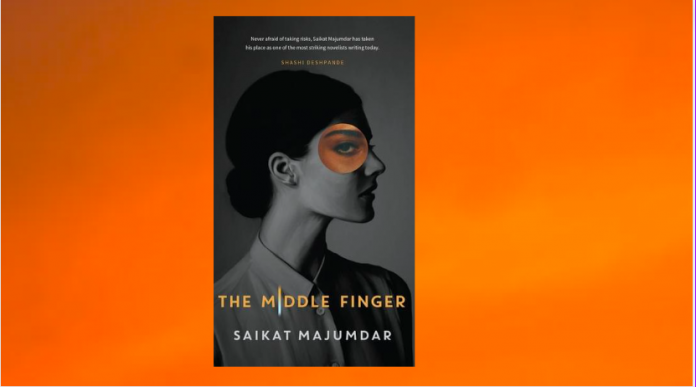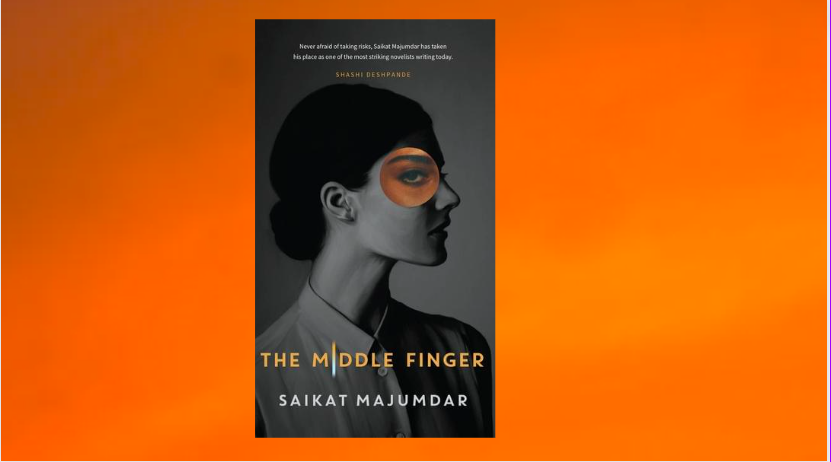The Middle Finger
by Saikat Majumdar
Publisher: Simon and Schuster (2022)
The first thing one notices about The Middle Finger by Saikat Majumdar is its dark grey cover with the left profile of a young lady on it with a colourful eye. It is only when you remove the jacket from the cover that you see underneath a picture of a woman’s reflection in the glass pane of a window, with a cup and some books lying by it. It is that woman’s eye that is popping through the cover image from a round cutout.
In many ways, this speaks a lot about the book itself. Every single character in the book has layers, multiple of them. On the face of it, they look very different as they struggle to go through their day-to-day pretending to be someone else. To an extent, they are scared to reveal their truest selves to the world. And yet, there are times when they see the world differently because their soul is tired of pretending.
Saikat Majumdar is a critically acclaimed writer with many popular titles to his credit including The Scent of God (Simon and Schuster, 2019) and The Firebird/Play House. His writings are known to capture the intricacies and eccentricities of life exquisitely.
The Middle Finger is the story of Megha, a young lecturer in New Jersey. The novel traces her journey as her life comes to a full circle, from starting in Kolkata to America, a return to a nondescript place like Haryana, and finally back to Kolkata.
Through Megha’s story, Majumdar explores various themes like privilege, racism and the varying ways of the Indian society. Poetry forms a core theme of the story, all the while being in a sharp and lyrical prose.
“Everything flowed in the empty flat, where she cooked simple stir-fried meals for herself and was too lazy to buy proper cooking utensils, promising she would do so on the weekend, which she did.” (Pg 110)
One of the most interesting questions raised in the blurb of the book was:
What are the ethical boundaries of friendship and intimacy between a student and a teacher?
All throughout the novel, Majumdar treads eloquently on the fine line which can be deciphered as the boundary of friendship and intimacy. The feeling of deep-seated despair in the tone is impossible to miss. So is the sensitive portrayal of characters, their emotions and the upheavals of their life. The emotions are palpable through the pages. The tension, the worry, the confusion and the small moments of joy – all are embedded well in the narrative.
The characters are skillfully carved, not only in their character arcs or physical presence throughout the narrative but also in the depiction of their standing in the social ladder. Each has their distinct voices in the story, conspicuously adding layers to the narrative.
There is a distinct subtlety all throughout the story. This ensures that the story along with its characters and their depiction stays with the readers long after they are done reading the book. It wouldn’t be wrong to call this book an emotional rollercoaster ride for the readers. Majumdar’s ability of exploring human sensibilities through his writings is prominently at display in this work, making it a sheer joy to read till the last page.






RELATED ARTICLESMORE FROM AUTHOR
Swallowing the Sun
Daiva: Discovering the Extraordinary World of Spirit Worship
The Book Of Everlasting Things